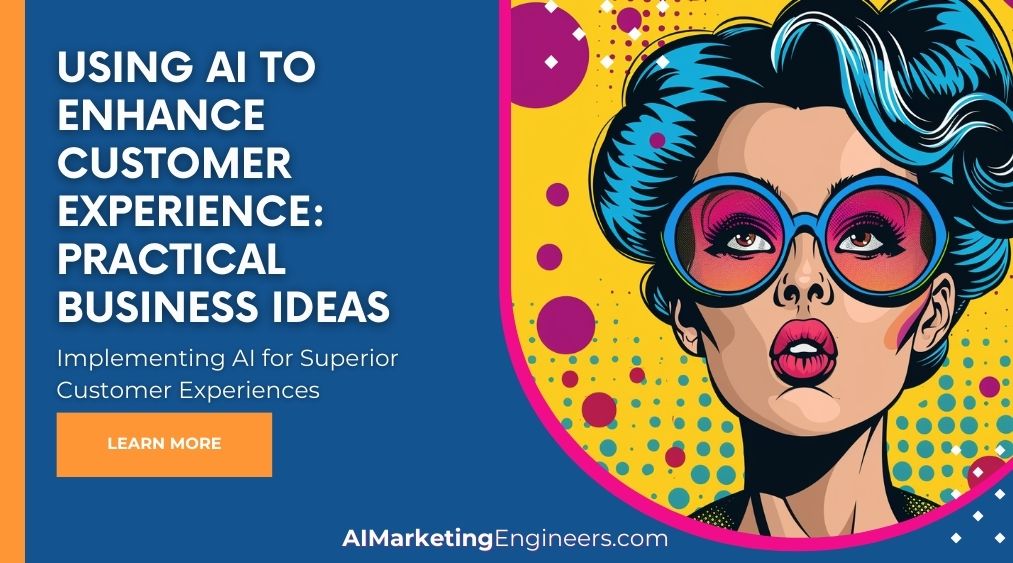Key Takeaways
✅ Content Marketing Drives Engagement: Implementing a robust content marketing strategy is essential for engaging audiences and building brand awareness. According to the Content Marketing Institute, 72% of marketers say that content marketing has increased their number of leads. Quality content not only attracts potential customers but also nurtures them through the sales funnel, ultimately contributing to higher conversion rates.
✅ Social Media Advertising Enhances Reach: Leveraging social media platforms for advertising is crucial for reaching a broader audience and driving business growth. A report by Hootsuite indicates that 73% of marketers believe that their efforts through social media marketing have been "somewhat effective" or "very effective" for their business. This widespread efficacy underscores the importance of social media in modern marketing strategies.
✅ Email Marketing Yields High ROI: Email marketing remains one of the most cost-effective strategies for achieving business goals. Data from Campaign Monitor reveals that email marketing has an ROI of 4400%, meaning that for every $1 spent, businesses can expect an average return of $44. This impressive statistic highlights the power of email marketing in maintaining customer relationships and driving sales.

Introduction
Are you ready to revolutionize your approach to marketing and campaign planning? In the rapidly evolving business landscape, knowing which marketing strategies are crucial can be the difference between success and stalling out. How well do you understand the needs and behaviors of your target audience? How can you leverage this knowledge to turbocharge your business goals?
This guide doesn't just list out strategies; it dives deep, offering actionable insights and exploring modern trends that could significantly boost your ROAS/ROI. Stay tuned as we unfold expert tips and groundbreaking strategies that will not only meet but exceed your campaign expectations.
Top Statistics
| Statistic | Insight |
|---|---|
| Digital Marketing Spend: Global digital ad spend is projected to reach $455.3 billion in 2021. (Source: eMarketer, 2021) | This massive investment underscores the importance of digital marketing in the modern business ecosystem. |
| Content Marketing: 70% of marketers actively invest in content marketing. (Source: HubSpot, 2021) | Reflects the crucial role that engaging and relevant content plays in attracting and retaining customers. |
| Social Media Marketing: 93% of marketers use Facebook for their marketing efforts. (Source: Social Media Examiner, 2021) | Indicates the dominance of Facebook as a platform, essential for running successful marketing campaigns. |
| Video Marketing: 86% of businesses use video as a marketing tool. (Source: Wyzowl, 2021) | Highlights the expanding reach and impact of video content in dynamic marketing strategies. |
| Mobile Marketing: 72% of people prefer using smartphones to access the internet. (Source: Statista, 2021) | Emphasizes the shift towards mobile-first strategies to enhance user engagement and reach. |
Define Business Goals and Target Audience
Understanding who you are marketing to and what you aim to achieve are crucial first steps in any successful marketing campaign. Before launching into the creative aspects, a business must clearly identify its objectives and the specifics of its ideal customer demographics. This might involve determining whether the goal is to increase brand awareness, boost sales, or enter new markets. Concurrently, conducting thorough market research can shed light on potential customers' needs, preferences, and the challenges they face. This dual-focus provides a solid foundation for crafting targeted, effective marketing strategies.
Develop a Comprehensive Marketing Plan
Creating a detailed marketing plan is not just bureaucratic paperwork; it's a roadmap that guides all subsequent actions and decisions. This plan should outline the strategies, tactics, timelines, and budget, incorporating both traditional and digital marketing channels. Whether it's print ads, social media, or email marketing, choosing the right mix of channels is pivotal in maximizing both reach and engagement. How you blend these elements can often be the difference between a campaign that resonates and one that falls flat.
Leverage Data and Analytics
In today's digital age, navigating without data is like sailing without a compass. Data and analytics play a critical role in informing marketing decisions and measuring success. By analyzing which campaigns are performing well and which aren’t, companies can glean insights that help in continuously refining their marketing efforts. Here, key performance indicators (KPIs) are indispensable tools, providing clear metrics against which to measure campaign effectiveness and ROI.
Content Marketing Strategies
An effective content marketing strategy involves more than just pumping out blog posts or videos; it's about creating relevant, high-quality content that genuinely adds value to your target audience. Perhaps it’s a well-researched blog post that solves a common problem or a video tutorial that explains a complex product in simple terms. Whatever the format, the content should always be crafted with the audience's needs and interests at the forefront, aiming to establish credibility and foster trust.
Social Media Line
With numerous platforms at your disposal, identifying the most relevant ones where your target audience is most active is key to an effective social media marketing strategy. This involves not just broadcasting content but also engaging with users, responding to comments, and participating in conversations. Social media ads can further amplify your reach, helping to ensure that your marketing messages get in front of the right people.
Influencer Marketing and Partnerships
In an era where trust in traditional advertising is waning, influencer marketing stands out as a more authentic way to connect with audiences. Partnering with influencers who resonate with your brand can help tap into their follower base, increasing brand visibility and credibility. Similarly, collaborations with other businesses can open up new channels for exposure. The focus here should always be on building genuine, authentic relationships that bring mutual benefits.
Measure and Adjust
The only constant in marketing is change. Regularly measuring the success of your campaigns is crucial to understand what’s working and what isn't. This ongoing process of testing and refinement helps ensure that your marketing strategies remain effective over time, helping your business stay ahead of the curve and achieve its objectives.
AI Marketing Engineers Recommendation
Recommendation 1: Utilize Data-Driven Personalization: Invest in technology that supports data analytics to tailor your marketing strategies to individual customer preferences and behaviors. According to a 2021 survey by Epsilon, 80% of consumers are more likely to make a purchase when brands offer personalized experiences. This approach not only increases customer engagement but also boosts conversion rates.
Recommendation 2: Leverage Content Marketing Effectively: Create valuable and relevant content based on current consumer trends and search engine data. For instance, integrating SEO (Search Engine Optimization) strategies with content marketing can increase organic visibility and drive targeted traffic. Content Marketing Institute reports that 70% of marketers are actively investing in content marketing as it continues to hold substantial sway over purchase decisions.
Recommendation 3: Implement Omnichannel Marketing Techniques: Ensure a seamless customer experience across all digital platforms, from social media to your main website. Utilizing tools like Hootsuite or HubSpot can help synchronize your marketing efforts, making it easier to maintain consistency and gather comprehensive analytics. This strategy is crucial as Salesforce indicates that 74% of people use multiple channels to start and complete a transaction.
Relevant Links
- Maximize Your Affiliate Marketing Earnings in 2020
- ChatGPT Free vs Paid: Find Your Best Match
- Revolutionize Your Content with ChatGPT
- Unlock New Strategies: Top 10 Marketing Trends for 2024
- The Role of AI in Transforming Digital Marketing
Conclusion
In the ever-evolving landscape of marketing, strategically planning your campaigns around crucial marketing strategies can be the difference between stagnation and growth. By defining clear business goals and understanding your target audience, you already lay a foundation for success. The integration of comprehensive planning, including both traditional and digital approaches, ensures your reach is broad yet precise.
The role of data cannot be overstressed. In today's digital age, data and analytics offer invaluable insights that guide decision-making and tactic adjustments in real-time, maximizing campaign efficiency. Moreover, content remains king in fostering engagement and building lasting relationships with consumers. Whether through informative blog posts or compelling video content, high-quality, relevant content drives the narrative of your brand.
Social platforms and influifencer collaborations expand your visibility and enable direct consumer interaction, which is crucial for real-time feedback and community building. However, the magic lies in the continuous evaluation and refinement of strategies. By measuring outcomes against your set objectives and adapting to feedback, your marketing efforts remain effective and dynamic.
Reflect on these insights as you aim to craft campaigns that not only reach but resonate with your audience. Let the focus on strategic planning, constant optimization, and a keen eye on data guide your path to achieving your business objectives. Push forward with the determination to continuously innovate and tailor your approach as you go, ensuring that your marketing strategies are not just seen, but also felt.
FAQs
Question 1: What are the essential marketing strategies for successful campaign planning?
Answer: Essential strategies include identifying the target audience, setting clear SMART objectives, conducting market research, developing a unique value proposition, and choosing the right marketing channels.
Question 2: How can I integrate digital marketing strategies into my campaign planning?
Answer: You can integrate digital marketing by leveraging social media, utilizing SEO, implementing content marketing, and investing in paid advertising.
Question 3: What is the importance of customer segmentation in campaign planning?
Answer: Customer segmentation helps tailor marketing messages specifically to various customer groups, increasing campaign effectiveness and improving customer retention.
Question 4: How can I measure the success of my marketing campaigns?
Answer: Measure success by establishing relevant KPIs, using analytics tools to track performance, and regularly reviewing campaign results to refine strategies.
Question 5: What role does branding play in achieving business goals?
Answer: Branding increases customer loyalty, improves recognition, and differentiates your business, contributing to long-term success.
Question 6: How can I create a marketing budget that aligns with my business goals?
Answer: Understand your goals, allocate budget based on ROI potential, and regularly adjust the budget to ensure alignment with business strategies.
Question 7: What are the best practices for developing a cohesive marketing strategy?
Answer: Align the strategy with business goals, use insights from customer and market research, ensure cross-functional collaboration, and adjust the strategy based on performance.
Question 8: How can I stay up-to-date with the latest marketing trends and best practices?
Answer: Follow industry leaders, attend relevant events, and continuously test new marketing tactics to discover the most effective strategies for your business.
Question 9: What is the role of customer feedback in campaign planning?
Answer: Customer feedback provides insights into your audience’s needs and preferences and should inform your marketing strategy and product development.
Question 10: How can I create a marketing against?
Answer: Start by understanding your business objectives, outline your marketing strategy including audience, channels, and budget, and adjust your plan regularly based on performance and strategic shifts.
Academic References
- Schultz, D. E., Holt, T. M., & Kelley, C. E. (2021). Integrated marketing communications: Putting promotion together. Routledge. This pivotal textbook underscores the significance of Integrated Marketing Communications (IMC) in orchestrating effective marketing campaigns that are in harmony with business
objectives. It advocates for a unified promotional voice across all channels and underscores the role of
market research. - Boone, L. E., & Kurtz, D. L. (2020). Contemporary marketing 2020: New challenges, new strategies. Cengage Learning. This book navigates through the terrain of modern marketing strategies and trends, highlighting the impact of digital marketing and the imperative role of data in making informed marketing decisions. It discusses the centrality of a consumer- focused approach and analytics in driving campaign success.
- Kotler, P., & Keller, K. L. (2021). Marketing management. Pearson. This classic text delves into the core strategies of marketing management, exploring vital concepts such as market segmentation, targeting, and positioning. It highlights the importance of understanding customer intricacies and aligning marketing mix components to craft effective marketing strategies aligned with business goals.
- Chaffey, D., Ellis-Chadwick, F., & Mayer, R. (2021). Digital marketing: Strategy, implementation & practice. Pearson. This publication focuses on digital marketing tactics and strategies, including the usage of social media, SEO, and content marketing. It emphasizes a comprehensive digital marketing plan in sync with business objectives and the importance of analytics in evaluating campaign success.
- Kerin, R. A., Hartley, S. W., & Rudelius, W. (2021). Marketing: The core. McGraw-Hill Education. This textbook explores essential marketing concepts, stressing the importance of customer behavior understanding and the utilization of marketing research in strategy formulation. It advocates for a customer-centric approach and the use of marketing metrics to gauge the effectiveness of campaigns and
achieve business mandates.












